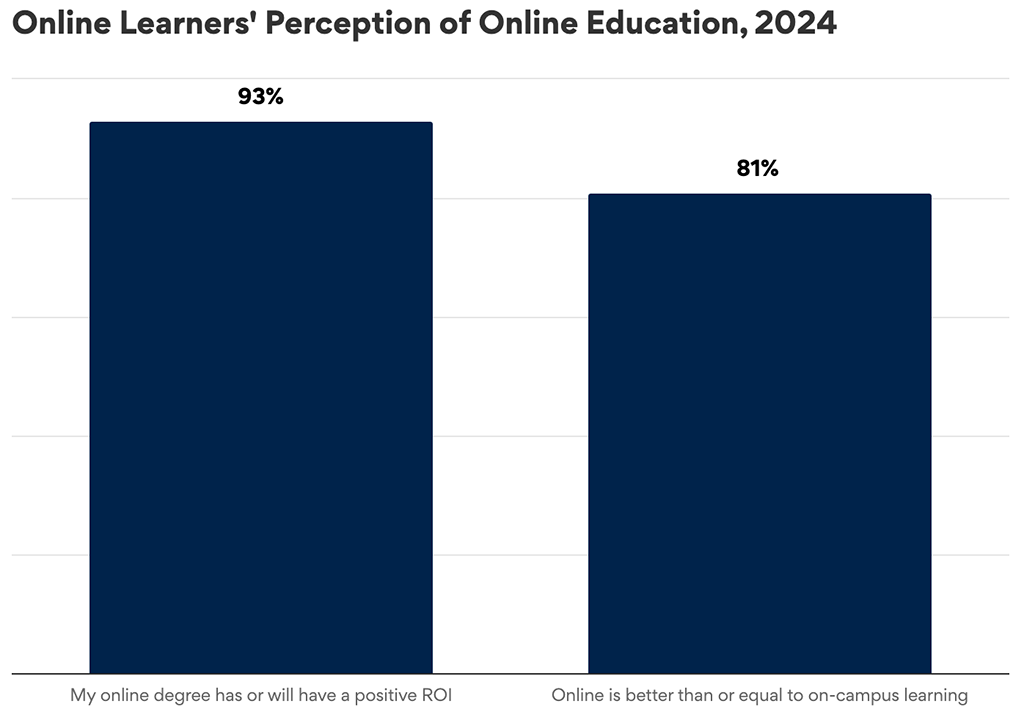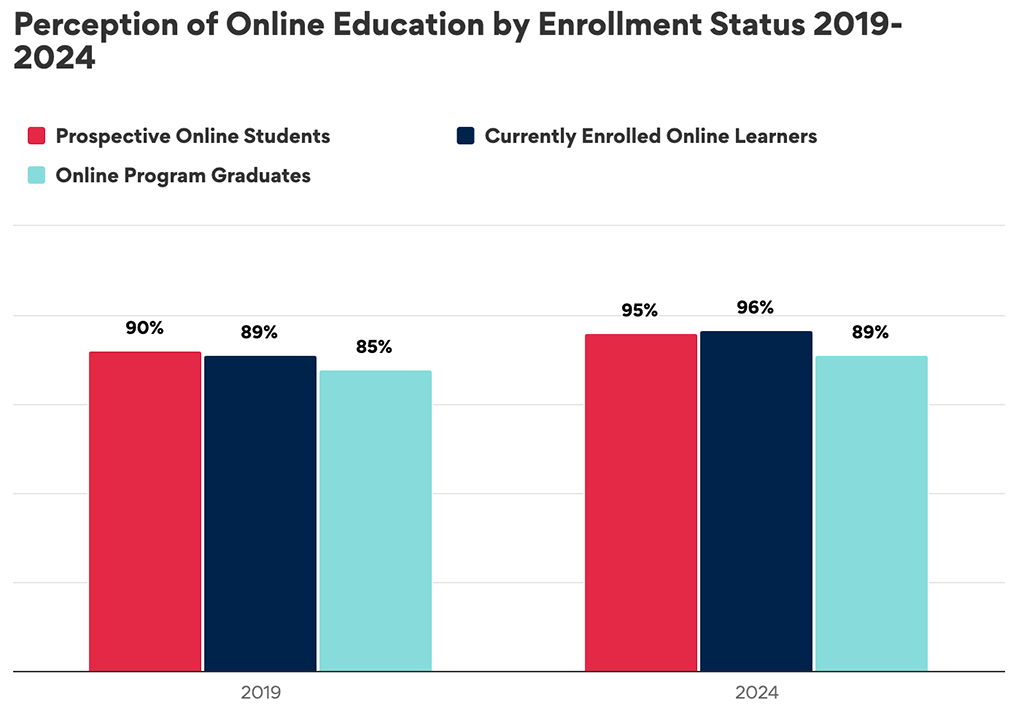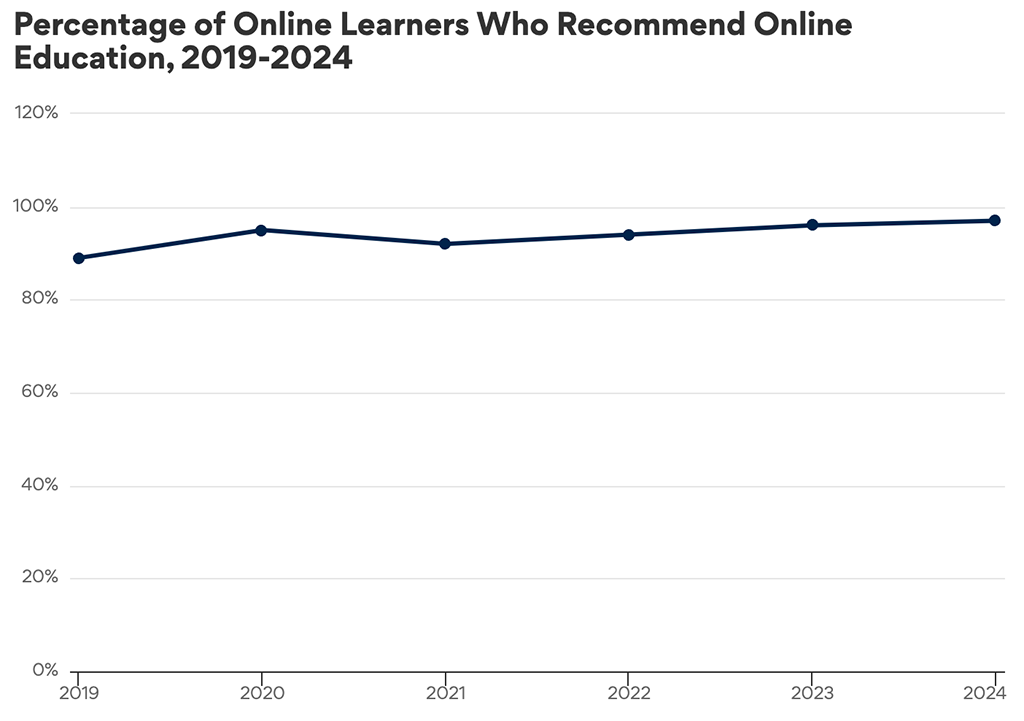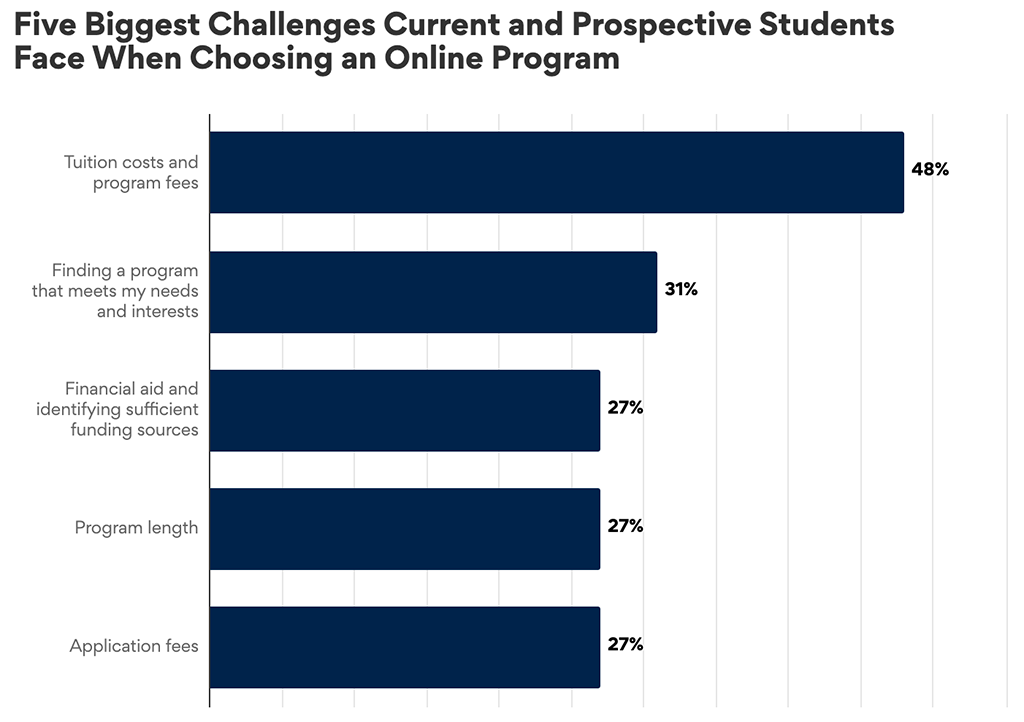
9 in 10 online learners experience positive ROI from degree program
This story was produced by BestColleges and reviewed and distributed by Stacker Media.
9 in 10 online learners experience positive ROI from degree program
Data Summary
- In 2024, 93% of surveyed students told BestColleges their online degree has or will have a positive return on investment (ROI).
- The percentage of online learners who say this has increased by five percentage points since 2019.
- More than 8 in 10 online students (81%) also say that online education is better than or equal to on-campus learning.
- Further, 97% say they would recommend online education to others.
- Despite online education being perceived as more affordable than in-person instruction, 48% of online learners say tuition costs and program fees were one of the biggest challenges to enrolling.
Online learners continue to show confidence in the value of their degree programs, the latest BestColleges survey reveals.
In its 2024 Online Education Trends Report, 93% of current, prospective, and already graduated online learners say their program has or will have a positive return on investment (ROI).
Further, 81% of these respondents say that online education is better than or equal to on-campus learning.

ROI Results Rise
Since 2019, BestColleges has repeatedly asked online learners about how they perceive the ROI of their programs.
In the first year of the survey, 88% of students said that their program has or will have a positive ROI. Prospective students at the time were most likely to believe in the ROI of their online degree (90%).
Today, however, currently enrolled online learners are most likely to say their online degree has or will have a positive ROI (96%).

Students Satisfied With Online Education Overall
Though online graduates are consistently least likely to say their degree has or will have a positive ROI, 90%, on average, have reported positive sentiments over the last six years.

Most Students Would Recommend Online Education to Others
In addition to online learners perceiving the value of their programs positively, the majority also say they would recommend their programs to others.
In 2024, 97% of respondents told BestColleges they would recommend online education to others, compared to 89% who said the same in 2019.
Financial Concerns Still Plague Online Learners
When it comes to the top challenges online learners face, both current and prospective students most commonly cite tuition costs and program fees.
Students additionally name financial aid, identifying sufficient funding sources, and application fees as some of the top challenges they face when choosing an online program.

Fees and Financial Aid Top Student Concerns
Though online learning programs are often thought to be much more affordable than in-person programs, this isn't always the case.
According to the National Center for Education Statistics, during the 2022-2023 academic year, the average net cost across 38 distance-learning-only programs was about $16,850 a year. This is only about $3,800 less than the average net price across all institutions in 2021-2022.
For more key insights about today's online learners, see BestColleges' full 2024 Online Education Trends Report.
About the Online Education Trends Report
BestColleges' 10th annual Online Education Trends Report is part of a long-term initiative to track trends in online learning. The report represents the eighth year of original data collection through two online surveys. Participants included 1,001 online students and 184 college and university administrators.



